Iran Preparing For Public Execution Of Two Men Over Shrine Attack
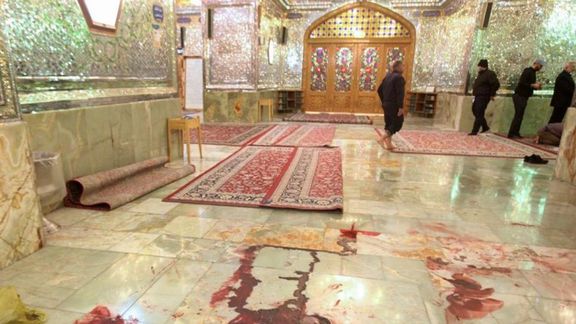
Iran is preparing to hang two men for their alleged role in a deadly attack on a Shia shrine in Shiraz last year.

Iran is preparing to hang two men for their alleged role in a deadly attack on a Shia shrine in Shiraz last year.
Fars province's Chief Justice, Kazem Mousavi, confirmed the public executions would take place "soon" in a show of force by the regime which has stepped up the rate of its public executions in recent months.
Public executions are becoming a tool of deterrence as the regime loses control under the continuing revolutionary tide.
After being convicted for aiding in "corruption on earth, armed rebellion, and acts against national security", the two men were sentenced to death in March.
On October 26, Mousavi said they played a direct role in the "arming, procurement, logistics, and guidance of the main perpetrator" of the terrorist attack at the Shah Cheragh mausoleum.
Over a dozen were killed and 30 injured in the attack on the shrine in October while it was claimed by the militant group Islamic State.
CCTV footage broadcast on state TV showed the attacker entering the popular Shah Cheragh shrine in the southern city of Shiraz after hiding an assault rifle in a bag and shooting as worshippers tried to flee and hide in corridors.
The gunman, identified as a citizen of Tajikistan, later died in a hospital from injuries sustained during the attack.
Three other men received jail sentences ranging from five to 25 years in the trial, Mousavi said, adding that several other "Daesh (Islamic State) suspects linked to this case" were awaiting trial.
In terms of the number of executions conducted annually, Iran ranks second only to China. IHR, a Norwegian group that advocates human rights in Iran, reports that at least 270 people have been executed since 2023
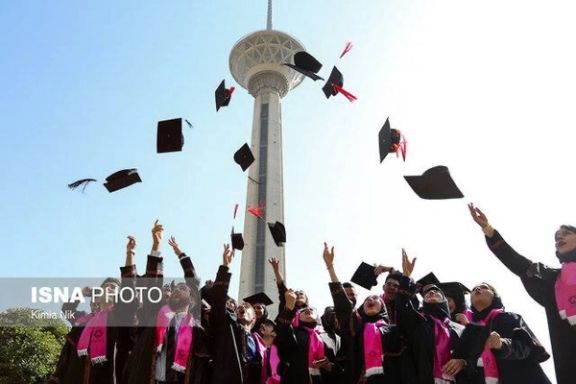
One million graduates are unemployed in Iran as the economy plunges to its lowest depths.
According to the Iranian Statistical Center, university graduate unemployment rates stood at 12.8% in the fourth quarter of last Iranian year (Dec. 22, 2022-March 20), and 37.2% of the total unemployed population, which was down 0.9% from last year.
In the midst of the women-led revolutionary movement, the unemployment rate for men with higher education qualifications stood at 9.2%, while the rate for women remained around 20.9%.
A total of 2.52 million Iranians were unemployed in Q4, according to the Statistical Center. Men’s unemployment stood at 8.5% while the rate for women hovered around 15.7%.
Male and female graduates' unemployment shares from the total unemployed population were 25.3% and 70.3%, respectively.
There are numerous figures about Iran’s unemployment rate, ranging from the IMF which puts it at about 11 percent to other sources who report it to be over 20 percent.
Part of the huge difference in numbers might be due to the government’s definition of employment. The Islamic Republic considers anyone who works for one hour a week as employed, which means that the government greatly overestimated the number of those in full or even part-time employment.
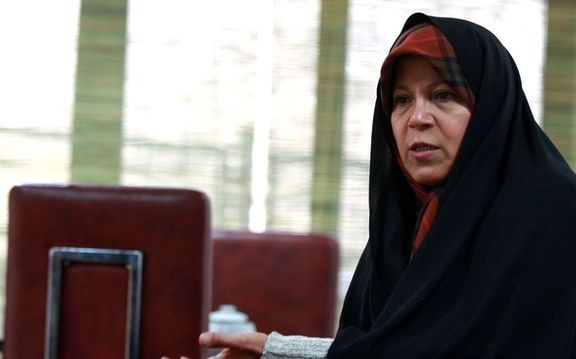
In a letter from Evin Prison, Faezeh Hashemi, harshly criticized Supreme Leader Ali Khamenei for unconstitutionally objecting to a referendum in Iran.
Iran International received a copy of the statement Sunday and verified its authenticity.
“Objection to a democratic provision of the Constitution by you is flabbergasting,” Hashemi, the daughter of Iran’s former president Akbar Hashemi Rafsanjani, wrote while criticizing the “extensive and systematic violation of Iranians’ citizen rights”.
“It appears that unwillingly you expressed what was in your heart for a long time in a surprising manner and without attempting to keep up appearances,” she said.
In a speech at a meeting with students on April 18, Khamenei strongly objected to suggestions to allow people to decide crucial matters through a referendum.
“[Who says] the country’s various issues can be put to referendum? Where in the world do they do that? [Who says] all the people participating in a referendum have the faculty of analyzing that matter? What kind of demand is that?” Khamenei had rhetorically asked.
In her letter, Hashemi responded to Khamenei’s questions by reminding him of Article 59 of the current constitution, which was approved by a referendum after the Islamic Revolution of 1979.
Article 59 stipulates that in extremely important economic, political, social, and cultural matters, the functions of the legislature may be exercised through direct recourse to popular vote by holding a national referendum.
She also enumerated some of the most recent referendums in other countries including in Britain’s 2014 (Scottish independence) and 2016 (Brexit) as well as Spain’s 2017 Catalan independence referendums.
“How is that Palestinians can decide the type of their government [through referendum] as you have proposed but not the Iranian people? She asked. “It seems that those who support you have the power of analysis and others lack such powers and are sometimes even traitors and mercenaries of foreigners?”
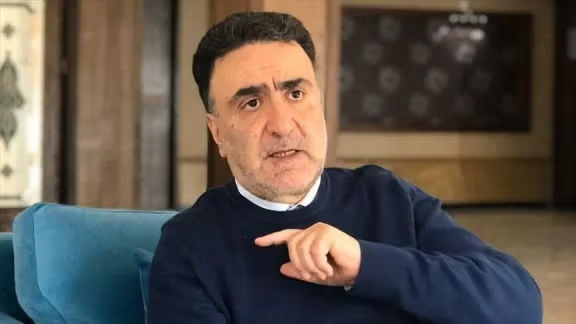
Faezeh Hashemi and several other political prisoners including former reformist Deputy Interior Minister Mostafa Tajzadeh and prominent political commentator and researcher in poverty, drug addiction, child abuse, and prostitution, Saeed Madani in a statement in February said they would do their best to advance the proposal to hold a referendum and a peaceful and non-violent transition to a completely democratic and developed political structure in the country.
“The only way out of the impasse for the government is to surrender to the right of the people to determine their own destiny,” they declared.
Former President Hassan Rouhani and others, mainly reformist politicians, have repeatedly suggested holding referendums on “important issues” in domestic and foreign policy.
On April 5, Rouhani for a second time since the beginning of nationwide protests in mid-September said the answer to people’s demands in the areas of foreign and domestic policies and the economy could be found by holding referendums as envisaged by the Constitution of the Islamic Republic.
In February, former Prime Minister (1981-1989) and leader of the 2009 Green Movement Mir-Hossein Mousavi, who was a reformist presidential candidate in 2009 and has been under house arrest since 2011, said in a statement dubbed “To Save Iran” that there was no hope of reforms and demanded a free and untainted referendum about the necessity for a new constitution.
Such a referendum could potentially put an end to Velayat-e Faghih (rule of the Islamic jurist) which gives a cleric such as Ali Khamenei extraordinary powers including the power to overrule all elected bodies and officials and hence, people’s choice.
Any request for such direct recourse to public opinion must be approved by two-thirds of the members of parliament according to the Constitution. This condition practically blocks any chance of a referendum as currently the parliament is dominated by hardliners and Khamenei loyalists.
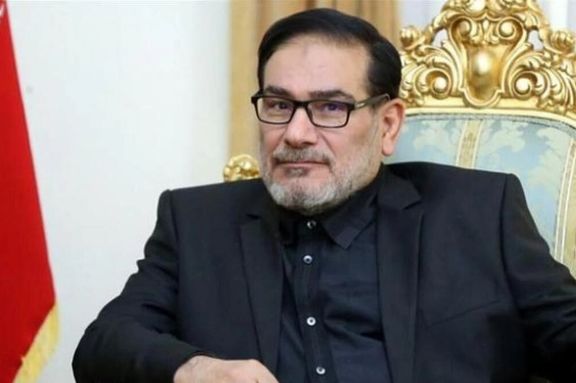
The resignation of Ali Shamkhani, Secretary of Iran’s Supreme National Security Council appears imminent, a website close to him reported late Sunday.
Nournews, believed to reflect Shamkhani’s views published a short news saying that a tweet by the long-time regime insider shows that his resignation is “certain.” The website did not provide any further details.
Official sources or government media have not reported or confirmed Shamkhani’s resignation.
Shamkhani was appointed in his position in 2013, Prior to that he was defense minister and commander of Iran’s army and IRGC navies. He was a member of the Revolutionary Guard from the early days of the revolution and has been serving as advisor to Supreme Leader Ali Khamenei.
In recent weeks there were rumors about Shamkhani stepping aside as Secretary of the security council, although he was dispatched to China in early March to sign an agreement with Saudi Arabia to restore diplomatic relations after seven years of tensions and frictions.
There have been many rumors and accusations about Shamkhani’s sons owning many businesses, including large shipping companies.
Other unconfirmed reports said that he will likely be replaced by Gen. Ali-Akbar Ahmadian, or perhaps by Gen. Rahim Safavi, both long-time high-ranking IRGC officers.
Ahmadian, 62, with the rank of Vice-Admiral served as Chief of Islamic Revolutionary Guard Corps (IRGC) Joint Staff in 2000s and later as head of IRGC’s strategic center.
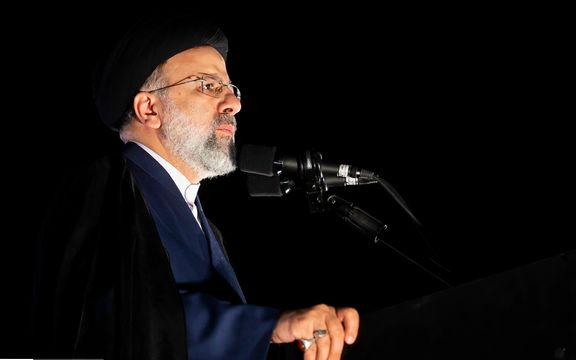
An Iranian lawmaker says President Ebrahim Raisi’s administration is incapable of controlling inflation although it had a far greater revenue than its predecessor.
The member of parliament’s national security, Shahryar Haidari, attributed the weakness to the Raisi administration's inefficiency.
"While government revenues increased under President Raisi's government, it did not manage the resources as efficiently as the previous government [of President Hassan Rouhani] that had succeeded in controlling inflation to some extent…," Haidari said.
However, he did not mention that the Rouhani administration had more access to the national foreign currency reserves although both governments are accused of wasting the national savings.
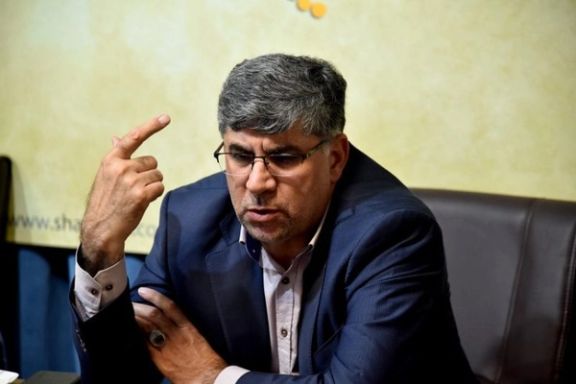
Recent statements by officials revealed successive governments spent $140 billion of Iran’s National Development Fund in 15 years, with the Rouhani administration in power for eight years.
On the other hand, the current government's "better financial status" is based on claims by its officials about rising oil exports, while economists, politicians and the media have reiterated every now and then that, the government has not been able to repatriate the hard currency for selling the oil at a price discount of 30 to 40 percent.
Haidari also praised the Rouhani administration for handling the negotiations over the revival of the 2015 nuclear deal more efficiently thanks to its capability and experience without undermining Iran's interests. Meanwhile he criticized the current government's diplomatic weakness.
The lawmaker argued that although not all of the country's problems are linked to sanctions and JCPOA nuclear talks, yet the situation could improve by 70 percent if the negotiations reach positive results.
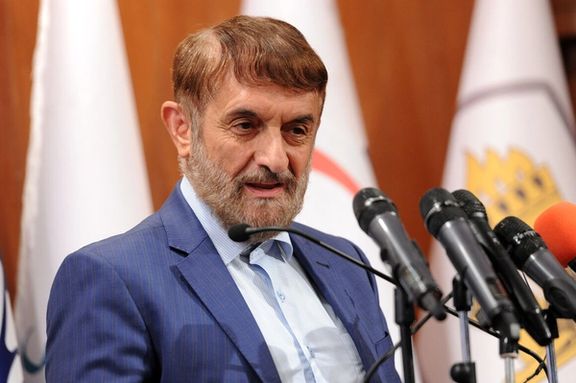
In recent days, first, an adviser to Supreme Leader Khamenei, Ali Aghamohammadi, who is also a member of the Expediency Council admitted that the country's economic situation is far less than desirable and that as a result "at least 19.7 million Iranians are deprived of proper housing, employment, medical care, food and clothing."
Later, former Telecommunications Minister Mohammad Javad Azari Jahromi criticized the Raisi administration for failing to stand by its promises of mending social divides, halving the inflation rate and immediately solving problems with the country's investment market. He pointed out that Raisi has lost a lot of his over two million followers on Instagram.
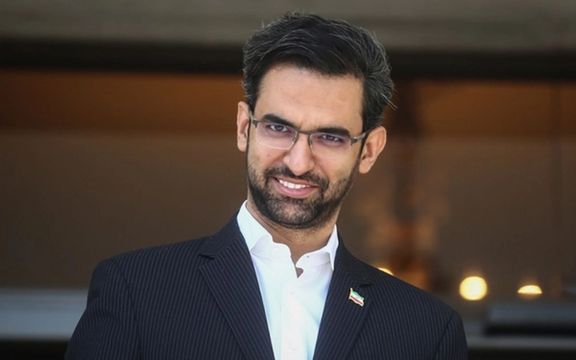
On Saturday, hardline daily Kayhan, whose editor is appointed by Supreme Leader Ali Khamenei and usually fully and unjustifiably defends the Raisi administration, shyly but openly criticized exiting economic conditions and wrote: "The people's economic situation has not improved under the new government. The cost of housing has continuously grown, and the price of essential commodities have increased, putting the people under pressure."
The Kayhan reiterated that "prices in the market in Iran reflect a chaotic situation." The daily added that the Islamic Republic cannot tolerate rising popular dissatisfaction. The economic problems of low-income Iranians is part of the country's realities, and the Islamic Republic and the ideology of late Ayatollah Ruhollah Khomeini and Supreme Leader Khamenei call for improving the economic situation in the interest of low-income Iranians." However, the daily stopped short of suggesting how this can be done.
The hardliner daily, as many other media outlets and public figures in Iran, steered away from pointing to US sanctions as the main reason for the economic crisis, and the need for an agreement with Washington.
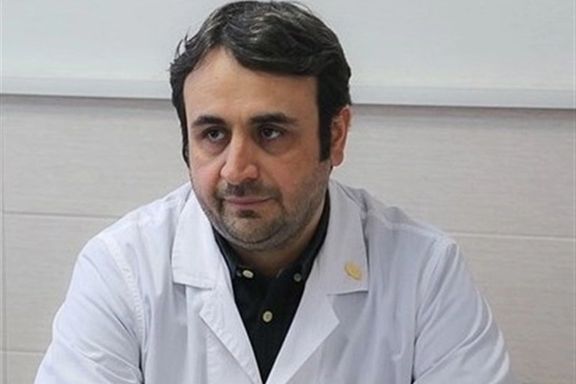
Sperm and egg donation can only happen in Iran if allowed by a religious fatwa, the Islamic Republic health ministry has decreed.
Deputy Health Minister Saeed Karimi said Sunday that the issue of egg and sperm donation to help infertility is beset with both legal and Sharia complications.
He said that the ministry is trying to reach a consensus based on "various fatwas" to announce a legal directive.
But the regime’s stance will be a desperate blow for many families and couples struggling to have children.
Donating sperm and eggs with the aim of helping the fertility of those who need help for various reasons has been legal in many countries for many years.
Head of Iran’s Scientific Association of Women and Midwives, Azam Mousavi told Borna news agency in April: “Until now, no law, resolution or protocol has been drafted and approved regarding sperm donation in Iran; It means that donating sperm is not legal, nor illegal in the country.
"Most Shia scholars do not consider donating sperm as permissible.
“Only a few scholars approve it under the condition that the donor of the sperm is known so that the child attributed to him can enjoy the rights such as inheritance.”
According to Ali Khamenei's fatwa, "in the absence of haram conditions such as looking, touching, etc., a stranger's sperm can be used for fertilization with a woman's egg, but the husband of the woman who became pregnant using this method will not be the father of the born baby.”